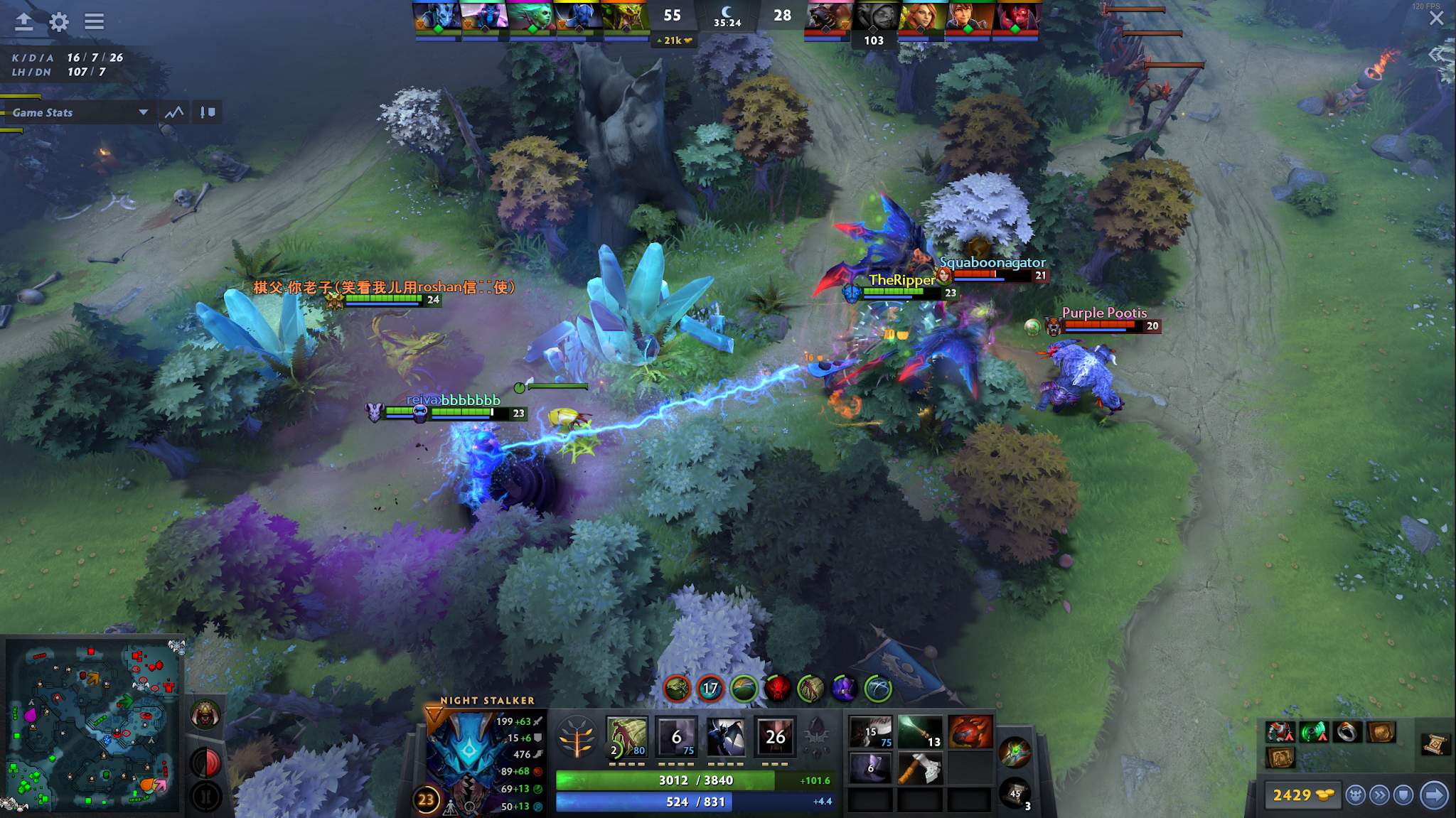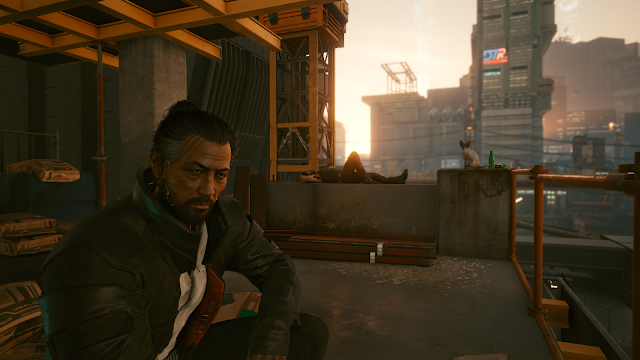What Ability Draft Taught me About Dota's Design
First, a preamble -- I have been playing Dota 2 on and off since I was twelve. I don't think I'm very good at it, but I'm addicted to it nonetheless. I'm fascinated by what I think Dota's design represents: choice.
Dota is a complex game. A hard game. You're expected to know and understand hundreds of items, heroes and abilities, when and how to utilize each of them, and esoteric mechanics that often resemble programming bugs.
Then, you're expected to make some choices: your lane, your role, your hero, your build, your items, your strategy. The list goes on.
The already steep learning curve steepens when you consider that nine other humans are thrown in to the tug of war, each of which are making their own choices to help or to hinder your struggle.
Actions, interactions, reactions. Ten people, making choices to win.
The deep complexity that Dota famously possesses that scares off many, however, is the source of its exclusive status in the world of action-strategy games.
Dota doesn't hold your hand. It asks you to make your choices and live (or die) with them. And it demands those choices at a breakneck pace.
Analyzing Dota at a fundamental, mechanical level is another level of obscurity buried beneath the choices we make during gameplay -- but it is an essential piece of Dota for those of us who have made Dota a complex part of our own complex lives.
A game, an obsession, a lifestyle, an ever-changing battleground, a place for friends and for competition and for drama, a collection of choices.
Ten people, making choices to win.
Ability draft is a game mode in Dota that challenges the player to make their choices increase exponentially.
Each player is given a random hero selected out of the hero pool (with some exceptions due to technical restraints) and their abilities are distributed in table which the players choose from to form a hero, and by extension a team, that is capable of winning against the other.
As a hero's abilities are stripped away, the skeleton of the hero, its base attributes and talents, are all that remain.
A veil is broken at that moment. You begin to understand exactly why a hero like Tidehunter should probably never be played as an attack speed core -- even if you do have the abilities to support it.
Tidehunter has poor starting attributes and attribute gain. His lack of agility means his attack speed and armor, two indispensable stats for the role will be lacking as well.
What does Tidehunter have? A boatload of strength and strength gain -- stats perfect for a character that soaks up damage and regenerates it all back quickly.
In normal Dota, we see these stats at work. Tidehunter is an initiator. He blinks in and stuns everyone to help win fights. He stays in the fight, absorbing damage from the enemy team and keeping his squishy and puny allies safe.
Naturally, our inclination in an ability draft game (if we're wise) is to draft a Tidehunter that roughly conforms to the archetype he inhabits in a normal game.
But what if your team is entirely composed of heroes from that archetype? What if your enemies or teammates take those abilities away from you? What if a Pudge is in the game?
Suddenly you're forced to make new choices based on your knowledge about roles and archetypes.
If Tidehunter is given enough Flesh Heap stacks that increase his strength further, pretty soon he'll start to get a little difficult to kill. Give him an Ethereal Blade and a Heart and he'll be an unstoppable death machine.
You begin to think about these things in this game mode. How can I harness the natural strengths and weaknesses of my character into a cohesive role? After all, the game is still expected to have three cores and two supports.
In the example I gave above, the stats that make Tidehunter a great initiator in one game can make him a crazy single target canon in an ability draft game.
Your choice of what items to buy in the game are informed by the role you choose to inhabit. Due to the nature of the game mode, most cores often have a bit of spell damage and a bit of attack damage.
Hybrid, stat and utility items such as Orchid Malevolence, Aghanim's Scepter, Ghost Scepter, Gleipnir, Linken's Sphere and more see a lot of play in this game mode as roles and heroes are stretched to their limits.
In some games, players are able to draft game breaking and foe-rending combinations of abilities, talents, and items which forces the other team to think quick when considering how to counter.
The act of adapting your choices to these insanely novel situations is amplified as your knowledge of the game from top to bottom is tested. Furthermore, the game's paid build assistant, Dota Plus, barely works in this game mode.
Choices become granular, and as in regular Dota, every choice counts. And they're all on you!
 |
| An immortal Nightstalker who carried me |
Ability draft is a game mode for the curious, the analyzers, the strategizers.
It has helped me to understand the very core of Dota: the choices we make. Specifically, those regarding items and roles.
It helps a lover of the game to appreciate all the moving parts and fine tuning that the developers at Valve have been working on for nearly a decade (and all the work done by the DotA team before them).
It makes you a better and more thoughtful Dota player, as the considerations you make to role and itemization and easily applicable to the main game.
I've personally enjoyed some serious time in post-game stat screens with a friend, analyzing the vast number of choices made by each player and theorizing what would've happened if a single choice of was slightly different.
I recommend playing ability draft to anyone who is remotely interested about Dota and its design. It will test you, but if you allow it, and have the nerve for it, it may just help reveal some of the game's mysteries to you.
Addendum on talents, November 30 2021
I received an interesting response about the inclusion of talents into Dota and how their inclusion waters down the game mode as one commenter said.
While the commenter did not go specifically into detail about what he meant, I think it's fairly safe to conclude he was unhappy with how some talents that have hero-specific effects (as an example, Anti-Mage has a level ten talent which reduces the cooldown of his Blink ability by 1 second) have been implemented into ability draft.
When any of a hero's unique talents are missing their matching ability, instead the talent is replaced with a generic scaling gold bonus talent.
The gold bonus talents rarely feel worth their investment of a level when compared to the power boost that a unique talent or even a random generic stat-based talent provides. I'm not sure how balanced the latter could be if implemented, but I thought it was a good suggestion from another Dota nerd.
The general "tightness" of the design is brought down by what feels like an afterthought, I agree; however, I don't think it takes away from the lessons on roles and itemization that ability draft offers.
Talents' inclusion in the main game inarguably increases the complexity of every hero. Many heroes must make fundamental playstyle altering choices, and each player in the game must react and adjust accordingly.
Besides, the point of the main article was never to claim that ability draft itself was designed tightly, only that by breaking down Dota's mechanics to a granular level, that one can understand and apply the game design lessons at a more elemental level.
P.S. For some extra ability draft statistics, I recommend visiting this website created by community members Noville and bukka!



Comments
Post a Comment